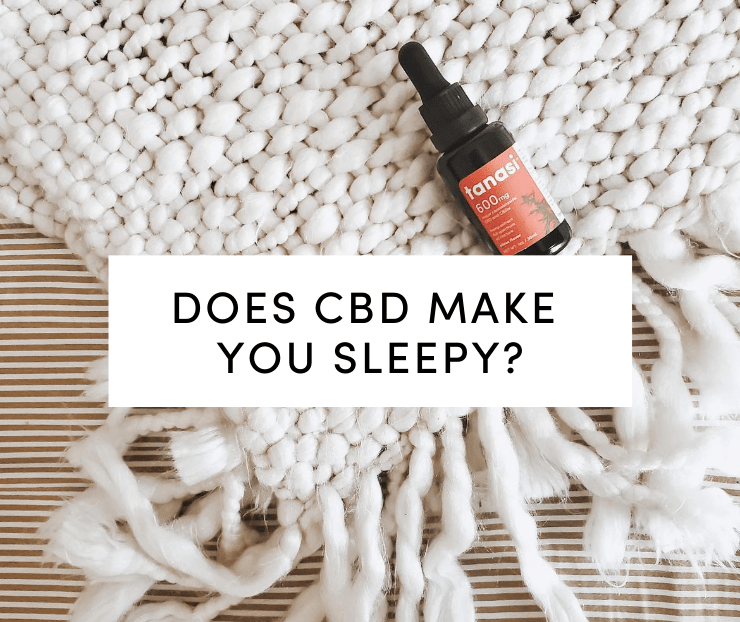Can I Take CBD and Melatonin Together?
Posted on August 28th, 2020
It is estimated that more than a third of the American adult population doesn’t get adequate sleep on a regular basis, according to a survey study in the CDC’s Morbidity and Mortality Weekly Report. Additionally, about 10% of the population (25 million people) suffer from chronic insomnia.
In today’s busy world, getting sufficient and quality sleep is essential. It is highly recommended for adults aged 18 to 60 to get at least 7 hours of quality sleep each day. The lack of adequate sleep significantly increases your risk of developing serious medical conditions such as obesity, heart disease, diabetes, stroke, high blood pressure, and mental conditions. As such, insomnia and other sleep conditions isn’t something that should be taken lightly.
While there are many different treatments available, most are prescription medications, which pose adverse side effects. Some prescription drugs have even been found to make the situation worse. As a result, more and more people are turning their attention to natural and safer sleep remedies. When it comes to the treatment of insomnia and other related sleep conditions, melatonin and CBD oil are recognized as two of the most effective natural supplements.
While the use of melatonin has long been backed by science, CBD is still a fairly new entrant in the industry. Even though further research into CBD’s suggested health benefits is needed, it is showing potential as a viable and effective alternative for a wide range of health conditions, including insomnia.
With both melatonin and CBD becoming more widely used and acknowledged as effective natural sleep aids, many people wonder whether they can take CBD and melatonin together for improved results. And if there are any potential side effects to mixing these two substances.
What Exactly Is Melatonin, and How Does It Work?
Melatonin is a type of hormone produced by the body in the pineal gland found in the brain. It plays a crucial role in regulating the body’s sleep-wake cycle, otherwise referred to as the circadian rhythm.
Melatonin is secreted in fluctuating levels depending on the presence of light. The melatonin levels in the bloodstream increase steadily in the evening, peaking between 11 PM and 3 AM. During the daytime hours, the melatonin levels are extremely low, and instead, other stimulating hormones such as cortisol are released into the bloodstream.
These fluctuations help to regulate your sleeping cycles. The changes in hormone levels help you remain awake and alert during the day and feel tired and sleepy once the sun sets. But when your body doesn’t produce enough melatonin, you are prone to suffer from sleep problems.
The production of melatonin in the body is commonly affected by factors such as age and exposure to artificial light. The body is naturally wired to increase its melatonin production when it senses a decrease in light levels in the evening. However, in modern times, our exposure to artificial light during these crucial hours of the day greatly impedes this process.
Numerous studies have also found that the production of melatonin decreases rapidly past the age of 60. This is mainly attributed to calcification of the pineal gland and decreased sensitivity of the melatonin receptors.
This is why people resort to synthetic melatonin to help treat their insomnia. The dietary melatonin supplement works by activating the melatonin receptors in the brain known as MT1 and MT2 receptors, which inform your brain that is is time to sleep.
The use of the synthetic version of melatonin to treat insomnia is referred to as melatonin replacement therapy. However, unlike sleep medications, it doesn’t lead to intoxication. Increased melatonin levels in the body help to suppress stimulating hormones. According to research, melatonin supplements offer a wide range of benefits, including:
- Alleviating jet lag
- Treating insomnia
- Improving sleep efficiency
- Minimizing wake times during sleep
- Reducing sleep latency
- Balancing sleep cycles for people suffering from complete or partial blindness
 What Exactly Is CBD, and How Does It Work?
What Exactly Is CBD, and How Does It Work?
Cannabidiol, or simply referred to as CBD, is a non-psychoactive extract of the cannabis plant. It amongst the hundreds of chemical compounds present in the plant. All cannabinoids synthesized by the cannabis plant are referred to as phytocannabinoids.
Same as with any other cannabinoid, CBD works by interacting with the endocannabinoid system (ECS), a special control and regulatory system in the body, through cannabinoid receptors found all over the body. There are two types of endocannabinoid receptors; CB-1 and CB-2. The CB-1 receptors are more pronounced in the central nervous system, while the CB-2 receptors are more pronounced in the immune system. The ECS regulates many vital bodily functions, which help in maintaining balance within the body. Any imbalance can lead to serious effects on the body. There is no understating how important the endocannabinoid system is to our survival. Some of the processes regulated by the ECS include:
- Mood
- Pleasure and reward
- Inflammatory responses
- Digestion and metabolism
- Memory
- Stress
- Immunity
- Body temperature
- Appetite
- And in this case, our sleep-wake cycles and circadian rhythms
Multiple studies have found that the effects of CBD on sleep may be mainly dependent on the amount of dosage. For example, in small amounts, CBD may act as a stimulant, while in large doses, it may induce sedation. This is why, when using CBD, it is important to determine the right dosage for you. To date, there hasn’t been any evidence indicating that the use of CBD poses any harm to the body.
While CBD has very few reported side effects, higher doses can result in mild side effects such as nausea, headaches, and irritability.
Is There a Connection Between CBD and Melatonin?
As discussed earlier, CBD influences sleep behavior through the cannabinoid receptors CB-1 and CB-2. On the other hand, melatonin influences sleep by activating MT1 and MT2 receptors. CB-1 and CB-2 cannabinoid receptors, and MT1 and Mt2 melatonin receptors all fall under the same group called G-protein Coupled Receptors, which means that they have similar underlying structures and produce a similar effect on body processes. Their benefits on sleep complement each other.
Can I Take CBD and Melatonin?
While further research is needed on the effects of CBD and melatonin, both are considered safe, and as a matter of fact, it may be more beneficial to take CBD and melatonin together. Due to their underlying similarities, the two substances are natural complements to each other. When combined, their use can be more effective. However, be sure to speak with your physician before introducing melatonin, CBD, or a combination of the two into your routine.
Melatonin supplements help you to sleep faster by reversing the effects of hormonal disruption caused by external factors. Meanwhile, CBD helps to improve the quality of your sleep by alleviating problems such as symptoms of anxiety and stress. This way, taking a combination of CBD and melatonin could contribute to achieving long and quality sleep.
In addition, as opposed to medications such as benzodiazepines, CBD and melatonin do not cause hangovers, withdrawal symptoms, or other serious side effects. This is one of the key factors that make these plant-based remedies so appealing to a lot of people.
 How to Take CBD and Melatonin Together
How to Take CBD and Melatonin Together
While the use of CBD and melatonin is considered safe, the last thing you need is overloading your body with too many sleep-inducing substances. You need to ensure that you get the quality and sustained sleep you need in order to stay awake, alert, and happier during the day.
Thus, the key here is to determine the right dosage for you. The rule of thumb is to start with low dosages to give your body time to adjust to the effects of CBD and melatonin, then work your way up. However, you have to keep in mind that studies have found smaller doses of CBD to have stimulating effects on the body.
Below is a brief guide on how to safely and properly use CBD and melatonin.
Melatonin Dosage
Melatonin is often sold in standardized doses of 1-milligram tablets. It is worth noting that even a smaller dosage amount anywhere from 0.3 to 0.5 milligrams is still effective. This means that you can use half a tablet for each night when starting out. However, some people may require higher doses of up to 5 milligrams. Doses higher than 5 mg can cause some mild side effects such as headaches, nausea, weird dreams, and wooziness.
However, according to research, the administration of high doses, above 5 mg, isn’t any more effective than administering regular doses. Thus, taking a dosage higher than 5 mg would likely be unnecessary.
CBD Dosage
The recommended starting dosage for CBD is much different than for melatonin. Again, low dosages of CBD have been found to have stimulating effects. While 10 mg is a good place to start, the general rule of thumb is to consider 0.25 milligrams for every one pound of body. This means that for average 200 pound adult, the regular dosage would be 50 milligrams.
For a much stronger dosage, you should consider 0.5 milligrams for every one pound of body weight. This means that an average 200-pound adult would require a 100-milligram dosage to experience stronger effects.

 What Exactly Is CBD, and How Does It Work?
What Exactly Is CBD, and How Does It Work? How to Take CBD and Melatonin Together
How to Take CBD and Melatonin Together


